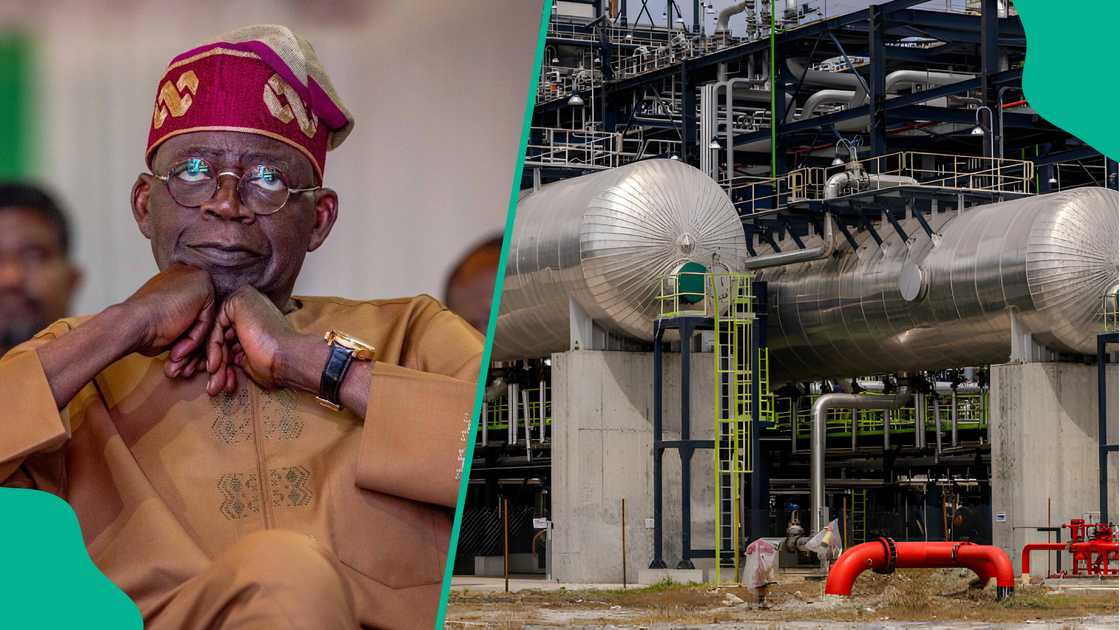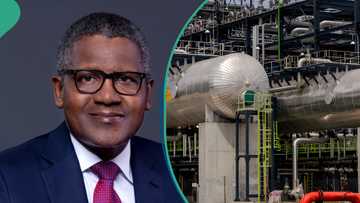FG Makes Bold Move to Sell Nigeria’s four Refineries After Years of Inactivity
- The Nigerian government has revealed plans to sell the nation’s four refineries to attract investors
- The plan, which has yet to be finalised, seeks to divest federal government’s interests from the plants
- Special Adviser to President Bola Tinubu on Energy, Olu Verheijen, revealed the plan in an interview with Bloomberg
Pascal Oparada is a journalist with Legit.ng, covering technology, energy, stocks, investment, and the economy for over a decade.
The Federal Government is considering the sale of Nigeria’s four state-owned refineries, a bold reform move aimed at attracting private investment, boosting efficiency, and strengthening competition in the country’s petroleum downstream sector.
The proposed divestment comes as the energy landscape in Nigeria undergoes major transformation, driven by the entry of the 650,000 barrels-per-day Dangote Refinery and the gradual liberalisation of fuel pricing.

Source: Getty Images
Private sector to take the lead
The government’s move signals a strategic shift away from decades of state control that left the nation’s refining capacity crippled, forcing Africa’s biggest oil producer to rely heavily on fuel imports.

Read also
Dangote Refinery hits 70 million litres of petrol, diesel daily as NNPC slashes fuel prices
Special Adviser to President Bola Tinubu on Energy, Olu Verheijen, revealed the plan in an interview with Bloomberg on the sidelines of the Abu Dhabi International Petroleum Exhibition and Conference.
She said the government is weighing several options for the refineries, including full or partial sale to qualified private investors with the financial and technical capacity to revive the moribund assets.
“It’s one of the options that you have to consider if you find the right technical partner with the right capital,” Verheijen stated, adding that President Tinubu’s administration aims to reposition Nigeria’s energy industry for sustainable growth through private-sector participation.
Nigeria’s four refineries, two in Port Harcourt, one in Warri, and one in Kaduna, have a combined installed capacity of 445,000 barrels per day.
However, they have been mostly idle for years, despite repeated promises of rehabilitation and multiple turnaround maintenance (TAM) projects that have cost billions of dollars.
Reports suggest that the Port Harcourt Refinery alone may have consumed over $18 billion in repair contracts without achieving significant output.
Ending subsidy distortions
Verheijen noted that for years, the refineries survived on subsidies that distorted market operations and discouraged investment.
“Now that we’ve removed the subsidies, we’ve removed the distortions in that market,” she explained.
“We are creating a more competitive and transparent downstream environment that encourages efficiency and innovation.”
The Nigerian National Petroleum Company Limited (NNPC), which currently manages the refineries on behalf of the federal government, is expected to play a role in the divestment process, either as a minority shareholder or facilitator of the sale.
Reforming for growth
Analysts see the move as a logical extension of President Tinubu’s economic reform agenda, which prioritises deregulation, efficiency, and transparency across critical sectors.
The energy sector, in particular, has been earmarked for deep structural reforms to unlock investment, improve local refining capacity, and reduce dependence on foreign imports.
The potential sale of the refineries could open the door for private operators to replicate the success of Dangote Refinery, which has already begun exporting petrol and aviation fuel to markets in the United States and Asia, positioning Nigeria as an emerging petroleum products hub.

Read also
"No fuel queues during festive season": Dangote assures Nigerians of steady petrol, diesel supply

Source: UGC
If successfully executed, the sale could mark the end of an era of waste and inefficiency in Nigeria’s refining sector, and usher in a new phase of competitiveness, innovation, and profitability.
Two firms secure $50bn for 500,000bpd refinery in Nigeria
Legit.ng reported that Backbone Infrastructure Limited (BINL) has secured over $50 billion in funding to build a 500,000 barrels-per-day (bpd) refinery and develop the 1,471-hectare Sunshine Free Trade Zone in Ilaje, Ondo State.
The funding comes through a joint venture partnership with Canadian firm NEFEX Holdings Limited, marking one of the largest private-sector refinery investments in Nigeria’s history.
The project follows the signing of a Memorandum of Understanding (MoU) in July between BINL and the Ondo State Government, through the Ondo State Investment Promotion Agency (ONDIPA).
Source: Legit.ng



